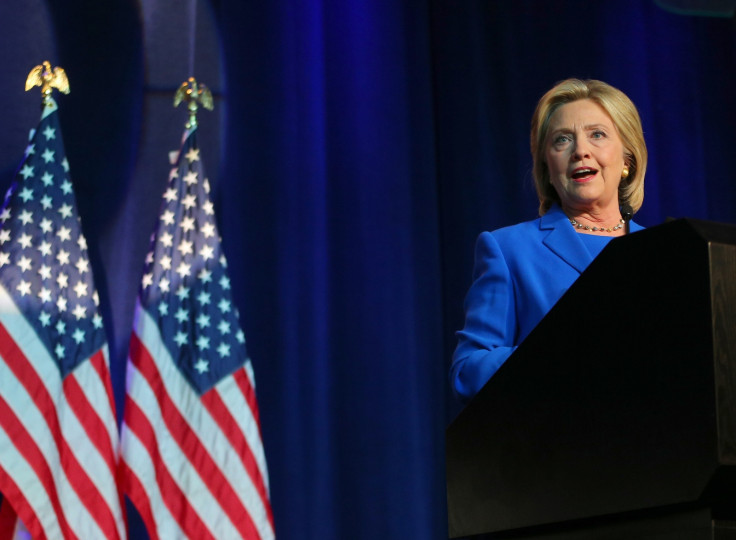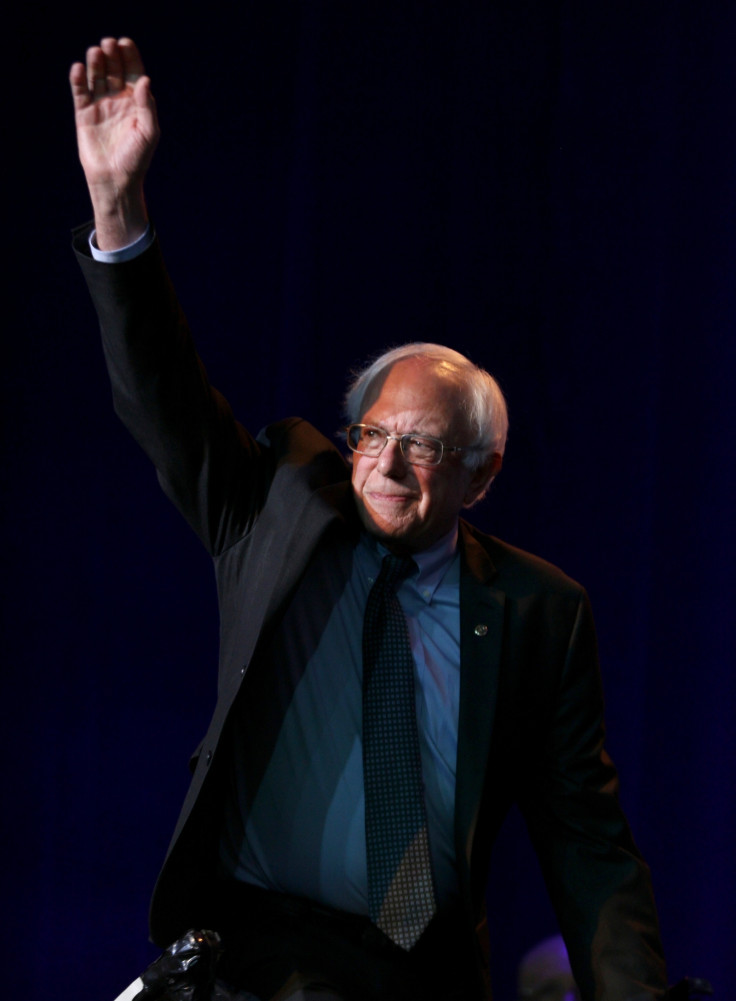Simon Heffer: How Bernie Sanders is giving Hillary Clinton a run for her money in US presidential race
Perhaps the US presidential election campaign is not going to be as predictable as it seemed after all. Until recently, it appeared that Hillary Clinton was the shoo-in for her party's nomination, and that whichever candidate the Republicans ended up choosing would lose to her. Now things appear to be less simple.
Any projections about the contest require huge caveats. We are still 14 months away from the vote, and anything could happen. Candidates who are in outer darkness now can come into the light – and quite possibly go out of it again – between now and then, and vice versa.

There is talk of the long game, of a nation sobering up ahead of polling day and limiting its choices to more staid, experienced competitors. Or there is the possibility that America has had enough of presidents churned out by the political machines of both parties, and are preparing to do something radical. Certainly, as the Obama presidency moves towards its conclusion with what promises to be a whimper rather than a bang – and America reflects on how little, yet again, it has to show for eight years of a machine politician running the country – the mood for a different politics seems to be growing.
Hence the current surge of support for Bernie Sanders, the 73-year-old Vermont senator who has a record of public service going back 35 years. Mr Sanders, who sits as an independent, will be 75 by election day and 79 by the end of the next presidential term, but that has not prevented paid-up Democrats from supporting in ever-larger numbers his brand of Democratic socialism. Mr Sanders's background as an activist in the Civil Rights Movement in the 1960s endears him to today's Democrats, and he has a long record of standing nearly alone in his brand of politics on the fringes of the Democratic party, with which he caucuses. He has opposed tax cuts, and champions income equality and the rights of sexual minorities. It is the sort of activist record that Hillary Clinton, who has been constrained for the last quarter-century by more elevated considerations, would kill to have.

This is one of the ironies of politics. Where Mrs Clinton – either because the demands of her husband's career or, later, because of her own need to build support as a senator and Secretary of State – had to work with people, Mr Sanders spent a lot of his career working against them, alienating potential supporters by his critique of both main parties. Now perhaps he is having the last laugh.
The type of bland consensus that leaves little to choose between contenders from the Republican and Democratic mainstream is one factor in US politics that ensures radical change does not happen, and that irritates those who have had enough of the status quo.
Add to that the ongoing controversy about Mrs Clinton's use of her insecure email account when she was Secretary of State, as well as her ultra-establishment status, and one can see why Mr Sanders has such a head of steam behind him.
Bigger and bigger crowds are attending his rallies: on 9 August, 28,000 went to a meeting in Portland, Oregon, to cheer him on – by far the largest rally that any Democratic candidate has yet addressed. He is a phenomenon like Jeremy Corbyn, the British Labour MP who began his party's current election campaign as a rank outsider but is now favourite to win it.
Mr Sanders has a counterpart in America, too – Donald Trump, who has set himself up as the anti-politics candidate for the Republicans. When last seen, Mr Trump stood at 28% in the polls of Republican supporters. Jeb Bush, who everyone until recently expected to be taking on Mrs Clinton in November 2016, languishes at 7%. Mrs Clinton barely notices Mr Sanders as an opponent and, in any case, is convinced that her vastly superior funding will carry her past the winning post. On the Republican side, however, Mr Trump is whipping up such a storm that the other Republican hopefuls have no choice other than to try to devise a strategy to deal with him. This is where the 'long game' argument comes in to play. Mr Trump may have billions to spend and may therefore be contemptuous of the Republican machine, which he appears not to need, but others believe fervently that his novelty will wear off and the GOP will return to 'serious' politics once again.
On the Republican side, however, Mr Trump is whipping up such a storm that the other Republican hopefuls have no choice other than to try to devise a strategy to deal with him.
Unfortunately, for the rest of the GOP field, they fail to understand that Mr Trump believes he is 'serious' – and many of those who tell pollsters they will support him believe he is serious, too, and they are serious about him. Mr Trump's constant gaffes and insults of sections of the American public seem to have had no adverse effect on his standing at all, and are to the public just further proof of how the media likes to stir up trouble.
Mr Trump, like Mr Sanders, seems to have identified himself with a big section of the American gut instinct, and it is one impervious to spinning or to any other media manipulation. We are a long way from a Sanders vs Trump final, but if America's mood doesn't change in the next few months – and anything can happen – only a fool would rule it out.
Dr Simon Heffer is a British commentator and author who has written columns for The Daily Mail, The Daily Telegraph, The Spectator and The New Statesman. He is the biographer of Enoch Powell, Thomas Carlyle and Ralph Vaughan Williams and recently published High Minds: The Victorians And The Birth Of Modern Britain.
© Copyright IBTimes 2025. All rights reserved.






















